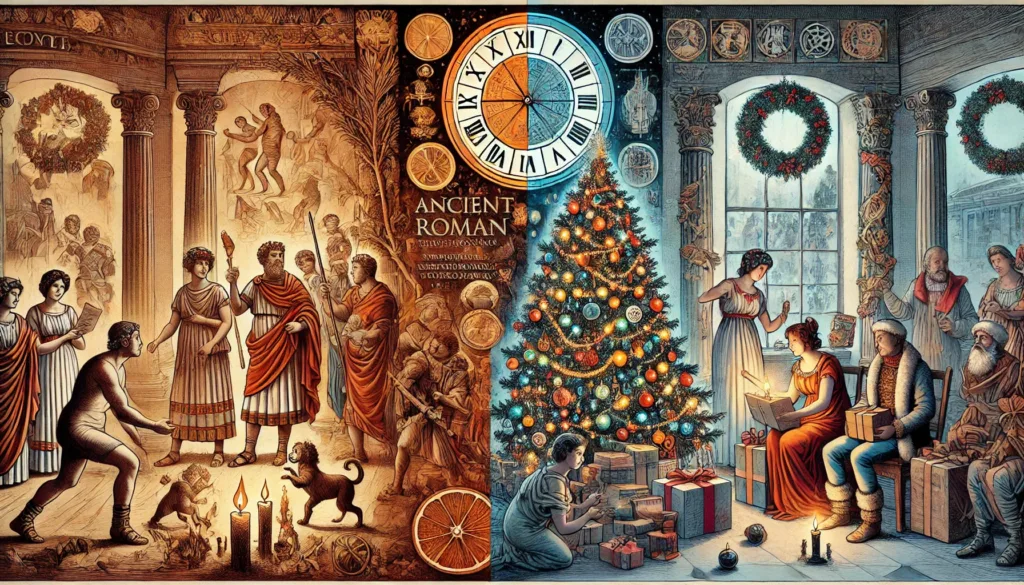Table of Contents
Introduction: Setting the Context
My Christian neighbor,
You might be expecting me to say “Merry Christmas” to you, especially since you have extended your congratulations to me during Ramadan, Eid al-Fitr, and Eid al-Adha. Moreover, when you are unwell, I visit you, and when you have social occasions, I offer my congratulations.
Before we delve into the matter of Christmas greetings specifically, allow me to share some insights about my religion and the significance of Christmas. Afterward, you can decide whether you truly expect me to extend such greetings or not.
My Prophet (Peace be upon Him) said:
“Indeed, actions are judged by their intentions“1
This means that, as a Muslim, anything I say or do must stem from a clear understanding of its purpose, and my intention must be pure. If I were to congratulate you on Christmas, I would need to determine whether I am doing so as an act of obedience to ALLAH—making it a religious act—or if it is a permissible action undertaken as a gesture of courtesy and goodwill towards you.
The Historical Roots of Christmas: A Critical Examination of Faith and Tradition
Let us first reflect on the essence of Christmas to determine whether my congratulating you or participating in its celebration could be an act done for the sake of ALLAH or simply a permissible courtesy extended to you.

Christmas, as established by Christian references, began as a pagan celebration. This is clarified in sources like the Biblical Encyclopedia, Volume Four, authored by four priests—scholars from your own religion, my Christian neighbor. It states:
“We cannot precisely determine the day and month in which Jesus was born, as there was very strong opposition in the early Church to the pagan custom of celebrating birthdays”2
It further notes:
“Perhaps the Western Church’s reason for choosing December 25th was that the Romans were celebrating the festival of the Sun God on that day…”3
Pagan origins are evident in many Christmas customs. The Christmas tree, the exchange of gifts, and other traditions all trace back to pagan rituals. Even Christian authorities have acknowledged,
“We converted them into Christian rituals, and while it’s good to have a time to celebrate Christ, the truth is they are all pagan rituals”4
American pastor David C. Pack discusses this in his segment titled “Should Christians Celebrate New Year’s?“ Drawing from your scripture—what you call the Holy Bible—he references texts that discourage imitating other nations. For instance, in the Book of Jeremiah, Chapter Ten, it says:
“Hear what the LORD says to you, people of Israel. This is what the LORD says:
“Do not learn the ways of the nations…
He continues, explaining that
…For the practices of the peoples are worthless…“5
David C. Pack urges his followers to avoid blindly adopting foreign customs.
Now, my Christian neighbor, do you truly expect me to celebrate with you a festival rooted in pagan traditions or to congratulate you on a celebration that even your religious texts question?
You might argue, “That was in the past”. But let us examine what you mean by “the past”. You may say this day is now celebrated as Christ’s birthday. But who is Christ to you, my Christian neighbor? According to your belief, He is the son of God and, at the same time, God incarnate in human form.
Compassionate Concern: When Love for Your Neighbor Meets Religious Conviction
Ah! Do you see the belief you hold, my Christian neighbor? As a Muslim, I do not see it as something to celebrate; rather, I view it as deeply concerning for you. I worry for you because I care about your well-being. My concern stems from a place of mercy, compassion, and genuine care. I fear that you might leave this world while holding on to polytheistic beliefs, and that thought deeply troubles me.
I have this concern because my role model is my Prophet Muhammad (Peace be upon Him), who said:
“My parable and that of yours is like a man who kindled a fire. When it has illuminated all around him, the moths and grasshoppers began to fall therein. He tried to push them away, but they overcame him and jumped into it. I am catching hold of your waists ties (to save you) from fire, but you slip away from My hands“6
My Prophet (Peace be upon Him) also said:
“The Compassionate One has mercy on those who are merciful. If you show mercy to those who are on the earth, HE Who is in the heaven will show mercy to you“ 7
This teaching is broad and universal—“those who are on the earth“ includes everyone, and so my fear for you and my mercy towards you are part of my faith. I cannot deceive you or feign approval of something that I genuinely believe endangers your soul.

If I saw your house burning, with fire threatening your family, my focus would not be on saying “Merry Christmas” to you. Instead, I would rush to save you and your loved ones. Similarly, I cannot participate in a celebration that I believe may lead to spiritual harm. As a Muslim, I deeply love and honor Prophet Jesus (Peace be upon Him) and consider myself closer to him than you might imagine. My Prophet Muhammad (Peace be upon Him) said:
“I am the closest of people to Jesus“8
Do you know why? According to the Quran, which I firmly believe in, Prophet Jesus (Peace be upon Him) said:
“…‘O Children of Israel, worship ALLAH, My LORD and your LORD’. Indeed, he who associates others with ALLAH- ALLAH has forbidden him Paradise, and his refuge is the Fire. And there are not for the wrongdoers any helpers“9
(Suraat ‘Al-Maa’idah, 5:72)
With this in mind, I speak to you with the same concern that Prophet Jesus (Peace be upon Him) conveyed. I fear for you because of what ALLAH says in the Quran:
“And they say, ‘The Most Merciful has taken [for HIMSELF] a son’. You have done an atrocious thing. The heavens almost rupture therefrom, and the earth splits open, and the mountains collapse in devastation that they attribute to the Most Merciful a son“10
(Suraat Maryam, 19:88-91)
As a Muslim, I stand firm in my faith and am proud of my beliefs. Therefore, I cannot, in good conscience, congratulate you on this holiday or participate in it. To do so would expose me to ALLAH’s displeasure and would mean betraying the love and mercy I feel for you by encouraging what I believe to be harmful. I cannot compromise my faith just to appear socially agreeable or avoid being labeled as isolated, extreme, or backward.
Living Islamic Ethics: A Guide to Genuine Social Relations
My honesty with you, my trustworthiness, and my genuine concern for your wellbeing are far more important than simply avoiding hurt feelings. I am not willing to deceive you, even if it means making you uncomfortable. In my faith, we have a saying: “May ALLAH have mercy on those who made me cry and cried for me, and not on those who made me laugh and laughed at me”. I won’t deceive you because your feelings are important, but saving you from ALLAH’s anger matters even more.
You might ask: “Doesn’t your Holy Book states:
“ALLAH does not forbid you from those who do not fight you because of religion and do not expel you from your homes – from being righteous toward them and acting justly toward them. Indeed, ALLAH loves those who act justly“11?
(Suraat ‘Al-MumtaHanah, 60:8)
Indeed, and because of this, I treat you with kindness and fairness:
- Are you sick? I visit you.
- Do you need financial help? I support you to the best of my ability.
- Has a loved one passed away? I console you with words that respect both our beliefs.
- Do you have a joyous occasion like a graduation, marriage, or a non-religious celebration? I congratulate you with expressions that align with my faith.
My religion commands me to act with justice and fairness in all dealings:
- Are you my colleague? I cooperate and do not compete unfairly.
- Are you my student? I teach you with sincerity and evaluate you fairly.
- Are you an employee? I ensure you receive your rights, for ALLAH commands: “Indeed, ALLAH commands you to render trusts to whom they are due and when you judge between people to judge with justice“12 (Suraat ‘An-Nissaa’, 4:58).
My faith also demands trustworthiness in my relationships. You should feel secure in trusting me with your life, your wealth, and your honor. I will not betray, deceive, or violate your sanctities. As the Messenger of ALLAH (Peace be upon Him) said:
“The believer is one whom people trust with their blood and wealth“13
Truth Above Courtesy: Islamic Principles in Interfaith Relations
My religion encourages me to fulfill my promises to you, maintain family ties if you are a relative, and strive to secure your rights and support you if you are oppressed—even if the oppressor is a Muslim. Yes, even if the oppressor is Muslim. This is because my religion is a religion of truth, and it follows truth wherever it leads.
As a Muslim who is proud of my faith, I strive to treat you well, my Christian neighbor—perhaps even better than those of your own faith might treat you. And understand, I do all of this to seek the pleasure of ALLAH the Almighty. It is not out of hypocrisy, worldly interests, or even for the sake of national unity. After all, national unity neither promises paradise to strive for nor a hell to avoid. My actions are guided by my desire to draw closer to ALLAH, who has commanded this goodness and tied paradise and hell to the fulfillment of these commands.
My greatest joy, my Christian neighbor, is when I am able to convince you to embrace Islam. I felt this joy when someone from Christian lands accepted Islam in my home after discussions rooted in kindness, respect, and genuine care. Praise be to ALLAH for this blessing. However, congratulating you on what you believe to be the birth of God is a different matter. Doing so would mean either participating in what I see as polytheism or speaking insincerely—lying to and deceiving you. But no, I neither lie nor deceive.
What about those scholars who claim that such congratulations are part of righteousness, you might ask? Their opinion, I must say, is invalid. Islam has no priesthood or clergy who can alter what ALLAH has commanded. The Messenger of ALLAH (Peace be upon Him), to whom the verse “…being righteous toward them and acting justly toward them“ was revealed, along with His companions and the scholars of Islam throughout history, understood and acted upon this verse. Yet none of them interpreted it to mean that congratulating you on what you see as the birth of God is an act of righteousness.
Distinctive Identity: The Muslim’s Path to Authentic Faith
Isn’t it possible, O Muslim, for you to celebrate with me while intending to honor Jesus as a Prophet, even as I celebrate Jesus as lord? No, of course not! My religion teaches me to have a distinct and influential identity, not one that is shaped by others. The Quran states: “You are the best nation produced [as an example] for mankind“14 (Suraat ‘Ali-‘Imraan, 3:110). As Muslims, we are meant to be role models, guiding others to the truth, not following them in matters contrary to it. This is part of the honor and dignity that Islam bestows upon us.

My Prophet (Peace be upon Him) said: “Every people have their festival (Eid)“15 (as recorded in Bukhari and Muslim). Consider the structure of this statement: “Every people have their festival“, which aligns with ALLAH’s words: “To each of you WE prescribed a law and a method“16 (Suraat ‘Al-Maa’idah, 5:48), and “For each [religious following] is a [prayer] direction toward which it faces“17 (Suraat ‘Al-Baqarah, 2:148). Just as we have our qibla, our law, and our method, we also have our own festivals, distinct and unique to us as Muslims.
You might ask, “Why not celebrate it simply as a new year without any religious intention?” But that doesn’t work either. Even if your intention is purely secular, others celebrate it with a religious basis, invoking polytheistic slogans. A Muslim must remain distinct, refraining from these celebrations and disassociating from their implications.
Islam teaches a Muslim to maintain distinction in personality and even in ordinary matters. Bukhari and Muslim narrate that the Messenger of ALLAH (Peace be upon Him) said: “The Jews and Christians do not dye their gray hair, so be different from them“18—encouraging Muslims to dye their gray hair. If such distinction is emphasized even in a natural matter like gray hair, how much more important is it to maintain distinction in celebrations rooted in doctrinal beliefs?
A Final Appeal: Historical Truth and an Invitation to Pure Monotheism
Before I conclude, my neighbor, I would like to share with you another text that sheds light on the origins of this festival you celebrate. In the book “On the Incarnation with Against the Heathen” by Monk Father Athanasius Al-Makary, it is stated:
“It wasn’t in the early Church’s mind to specify a particular day to celebrate the birth of Christ, as Scholar Origen objects to celebrating birthdays because, in his view, it is a pagan custom. He noted that only two individuals in the Bible celebrated their birthdays: first, Pharaoh, where the baker’s head was cut off, and second, Herod, where John the Baptist’s head was cut off. So whoever possesses apostolic piety does not celebrate their birthday because, in doing so, they resemble tyrants and pagans…”
The text continues:
“…Based on all the above, it becomes impossible to determine a specific date for Jesus’s birth”19
In conclusion, my Christian neighbor, I remind you of the words of ALLAH:
“Say, ‘Indeed, my LORD has guided me to a straight path – a correct religion – the way of Abraham, inclining toward truth. And he was not among those who associated others with ALLAH‘”20
(Suraat ‘Al-‘Ancaam, 6:161)
I invite you to a shared word, one that leads to monotheism and unity, as I sincerely hope that just as we have been neighbors in this world, we may also be neighbors in Paradise:
“Say, ‘O People of the Scripture, come to a word that is equitable between us and you – that we will not worship except ALLAH and not associate anything with HIM and not take one another as lords instead of ALLAH’. But if they turn away, then say, ‘Bear witness that we are Muslims [submitting to Him]’“21
(Suraat ‘Al-MumtaHanah, 60:8)
I sincerely ask ALLAH to guide you, and to guide the children of Muslims who may flatter you at the expense of deceiving you and compromising their own hereafter. May peace be upon those who follow guidance.
Source:
- Dr. Eyad Qunaibi. رسالة لجاري النصراني بمناسبة الكريسماس. YouTube Video.
- Sahih al-Bukhari ↩︎
- Biblical Encyclopedia, Volume Four ↩︎
- Biblical Encyclopedia, Volume Four ↩︎
- Biblical Encyclopedia, Volume Four ↩︎
- Jeremiah 10 NIV ↩︎
- Sahih al-Bukhari ↩︎
- Sunan Abi Dawud ↩︎
- Sahih al-Bukhari ↩︎
- Saheeh International translation ↩︎
- Saheeh International translation ↩︎
- Saheeh International translation ↩︎
- Saheeh International translation ↩︎
- Sahih al-Jami’ ↩︎
- Saheeh International translation ↩︎
- Sahih al-Bukhari & Muslim ↩︎
- Saheeh International translation ↩︎
- Saheeh International translation ↩︎
- Sahih al-Bukhari & Muslim ↩︎
- On the Incarnation with Against the Heathen ↩︎
- Saheeh International translation ↩︎
- Saheeh International translation ↩︎

